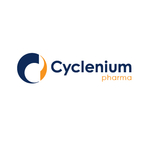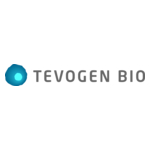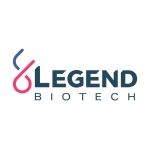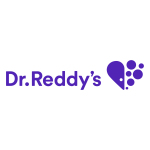TOKYO & MUNICH & BASKING RIDGE, N.J. — (BUSINESS WIRE) — Daiichi Sankyo Company, Limited (hereafter, Daiichi Sankyo) today announced that the first patient was dosed in the global DESTINY-Lung04 phase 3 trial evaluating the efficacy and safety of ENHERTU® (trastuzumab deruxtecan), a HER2 directed antibody drug conjugate (ADC) being jointly developed by Daiichi Sankyo and AstraZeneca (LSE/STO/Nasdaq: AZN), as a first-line treatment in patients with HER2 mutant unresectable, locally advanced or metastatic non-squamous non-small cell lung cancer (NSCLC).

DESTINY-Lung04 is the first head-to-head trial in NSCLC evaluating ENHERTU as a first-line treatment compared to the standard of care (platinum-pemetrexed doublet chemotherapy in combination with pembrolizumab) in patients with unresectable, locally advanced or metastatic non-squamous NSCLC harboring a HER2 exon 19 or 20 mutation.
Lung cancer is the leading cause of cancer death, accounting for about one-fifth of all cancer deaths globally, with 80% to 85% classified as NSCLC.1,2,3 There are currently no medicines approved specifically for the treatment of HER2 mutant NSCLC, which affects approximately 2% to 4% of patients with non-squamous NSCLC.4,5 Current standard of care in the first-line metastatic setting of patients with HER2 mutant NSCLC is PD-1 or PD-L1 immunotherapy with or without platinum-based chemotherapy.6 While these treatment regimens can improve survival in NSCLC, approximately 40% to 60% of tumors do not respond to initial treatment and disease progression occurs, underscoring the need for additional treatment approaches.7,8,9,10,11
“The results seen in the DESTINY-Lung01 trial showed a robust and durable tumor response in previously-treated patients with HER2 mutant metastatic non-small cell lung cancer,” said Gilles Gallant, BPharm, PhD, FOPQ, Senior Vice President, Global Head, Oncology Development, Oncology R&D, Daiichi Sankyo. “Based on these promising findings, we are conducting DESTINY-Lung04 to evaluate the potential of ENHERTU as an earlier line of therapy in this patient population.”
About DESTINY-Lung04
DESTINY-Lung04 is a global, randomized, open-label, phase 3 trial evaluating the efficacy and safety of ENHERTU (5.4 mg/kg) compared to standard of care (platinum-pemetrexed doublet chemotherapy in combination with pembrolizumab) in patients with unresectable, locally advanced or metastatic, non-squamous NSCLC harboring a HER2 exon 19 or 20 mutation.
Patients will be randomized 1:1 to receive either ENHERTU or standard of care. The primary endpoint of DESTINY-Lung04 is progression-free survival (PFS) as assessed by blinded independent central review (BICR). Secondary endpoints include overall survival, investigator-assessed PFS, overall response rate and duration of response as assessed by BICR and investigator, pharmacokinetics, patient-reported tolerability, immunogenicity and safety.
DESTINY-Lung04 will enroll approximately 264 patients at multiple sites across Asia, Europe, and North America. For more information about the trial, visit ClinicalTrials.gov.
About HER2 Mutant NSCLC
Lung cancer is the leading cause of cancer death, accounting for about one-fifth of all cancer deaths globally, with 80% to 85% classified as NSCLC.1,2,3 For patients with metastatic disease, prognosis is particularly poor, as only approximately 6% will live beyond five years after diagnosis.2
HER2 is a tyrosine kinase receptor growth-promoting protein expressed on the surface of many types of tumors, including lung, breast, gastric and colorectal cancers. HER2 gene alterations (called HER2 mutations) have been identified in NSCLC as distinct molecular targets and have been reported in approximately 2% to 4% of patients with non-squamous NSCLC.4,5 These HER2 gene mutations are predominantly seen in younger women, with no smoking history and have been independently associated with cancer cell growth and poor prognosis, with an increased incidence of brain metastases.4,12,13,14,15,16 The most common HER2 mutations are exon 20 insertions, found in 35% to 59% of all HER2 mutations in NSCLC, while exon 19 mutations represent approximately 16% of mutations.17,18,19 Although the role of anti-HER2 treatment is well established in breast and gastric cancers, HER2 is an emerging biomarker in NSCLC with no approved HER2 directed therapies.4,20
Current standard of care in the first-line treatment of patients with HER2 mutant metastatic NSCLC is PD-1 or PD-L1 immunotherapy with or without platinum-based chemotherapy.6,7 While these treatment regimens can improve survival in NSCLC, at least 40% to 60% of tumors do not respond to initial treatment and disease progression occurs, underscoring the need for additional treatment approaches.7,8,9,10,11
About ENHERTU
ENHERTU® (trastuzumab deruxtecan; fam-trastuzumab deruxtecan-nxki in the U.S. only) is a HER2 directed antibody drug conjugate (ADC). Designed using Daiichi Sankyo’s proprietary DXd ADC technology, ENHERTU is the lead ADC in the oncology portfolio of Daiichi Sankyo and the most advanced program in AstraZeneca’s ADC scientific platform. ENHERTU consists of a HER2 monoclonal antibody attached to a topoisomerase I inhibitor payload, an exatecan derivative, via a stable tetrapeptide-based cleavable linker.
ENHERTU (5.4 mg/kg) is approved in more than 30 countries for the treatment of adult patients with unresectable or metastatic HER2 positive breast cancer who have received two or more prior anti-HER2-based regimens based on the results from the DESTINY-Breast01 trial.
A supplemental New Drug Application is under review in Japan for the treatment of adult patients with HER2 positive unresectable or recurrent breast cancer previously treated with trastuzumab and a taxane, based on the results from the DESTINY-Breast03 trial.
ENHERTU (6.4 mg/kg) is approved in several countries for the treatment of adult patients with locally advanced or metastatic HER2 positive gastric or gastroesophageal junction (GEJ) adenocarcinoma who have received a prior trastuzumab-based regimen based on the results from the DESTINY-Gastric01 trial.
A Type II Variation is currently under review by the European Medicines Agency (EMA) for the treatment of adult patients with locally advanced or metastatic HER2 positive gastric or GEJ adenocarcinoma who have received a prior anti-HER2-based regimen.
ENHERTU is approved in the U.S. with Boxed WARNINGS for Interstitial Lung Disease and Embryo-Fetal Toxicity. For more information, please see the accompanying full Prescribing Information, including Boxed WARNINGS, and Medication Guide.
About the ENHERTU Clinical Development Program
A comprehensive global development program is underway evaluating the efficacy and safety of ENHERTU monotherapy across multiple HER2 targetable cancers including breast, gastric, lung and colorectal cancers. Trials in combination with other anticancer treatments, such as immunotherapy, are also underway.
ENHERTU was highlighted in the Clinical Cancer Advances 2021 report as one of two significant advancements in the “ASCO Clinical Advance of the Year: Molecular Profiling Driving Progress in GI Cancers,” based on data from both the DESTINY-CRC01 and DESTINY-Gastric01 trials, as well as one of the targeted therapy advances of the year in non-small cell lung cancer (NSCLC), based on the interim results of the HER2 mutated cohort of the DESTINY-Lung01 trial.
In September 2021, ENHERTU received its fourth Breakthrough Therapy Designation in the U.S. for the treatment of adult patients with unresectable or metastatic HER2 positive breast cancer who have received one or more prior anti-HER2-based regimens.
About the Daiichi Sankyo and AstraZeneca Collaboration
Daiichi Sankyo and AstraZeneca entered into a global collaboration to jointly develop and commercialize ENHERTU in March 2019 and datopotamab deruxtecan (Dato-DXd) in July 2020, except in Japan where Daiichi Sankyo maintains exclusive rights for each ADC. Daiichi Sankyo is responsible for the manufacturing and supply of ENHERTU and datopotamab deruxtecan.
U.S. Important Safety Information for ENHERTU
Indications
ENHERTU is a HER2-directed antibody and topoisomerase inhibitor conjugate indicated for the treatment of adult patients with:
- Locally advanced or metastatic HER2-positive gastric or gastroesophageal junction adenocarcinoma who have received a prior trastuzumab-based regimen.
|
WARNING: INTERSTITIAL LUNG DISEASE and EMBRYO-FETAL TOXICITY
|
- Interstitial lung disease (ILD) and pneumonitis, including fatal cases, have been reported with ENHERTU. Monitor for and promptly investigate signs and symptoms including cough, dyspnea, fever, and other new or worsening respiratory symptoms. Permanently discontinue ENHERTU in all patients with Grade 2 or higher ILD/pneumonitis. Advise patients of the risk and to immediately report symptoms.
- Exposure to ENHERTU during pregnancy can cause embryo-fetal harm. Advise patients of these risks and the need for effective contraception.
|
Contraindications
None.
Warnings and Precautions
Interstitial Lung Disease / Pneumonitis
Severe, life-threatening, or fatal interstitial lung disease (ILD), including pneumonitis, can occur in patients treated with ENHERTU. Advise patients to immediately report cough, dyspnea, fever, and/or any new or worsening respiratory symptoms. Monitor patients for signs and symptoms of ILD. Promptly investigate evidence of ILD. Evaluate patients with suspected ILD by radiographic imaging. Consider consultation with a pulmonologist. For asymptomatic ILD/pneumonitis (Grade 1), interrupt ENHERTU until resolved to Grade 0, then if resolved in ≤28 days from date of onset, maintain dose. If resolved in >28 days from date of onset, reduce dose one level. Consider corticosteroid treatment as soon as ILD/pneumonitis is suspected (e.g., ≥0.5 mg/kg/day prednisolone or equivalent). For symptomatic ILD/pneumonitis (Grade 2 or greater), permanently discontinue ENHERTU. Promptly initiate systemic corticosteroid treatment as soon as ILD/pneumonitis is suspected (e.g., ≥1 mg/kg/day prednisolone or equivalent) and continue for at least 14 days followed by gradual taper for at least 4 weeks.
Metastatic Breast Cancer
In clinical studies, of the 234 patients with unresectable or metastatic HER2-positive breast cancer treated with ENHERTU 5.4 mg/kg, ILD occurred in 9% of patients. Fatal outcomes due to ILD and/or pneumonitis occurred in 2.6% of patients treated with ENHERTU. Median time to first onset was 4.1 months (range: 1.2 to 8.3).
Locally Advanced or Metastatic Gastric Cancer
In DESTINY-Gastric01, of the 125 patients with locally advanced or metastatic HER2-positive gastric or GEJ adenocarcinoma treated with ENHERTU 6.4 mg/kg, ILD occurred in 10% of patients. Median time to first onset was 2.8 months (range: 1.2 to 21.0).
Neutropenia
Severe neutropenia, including febrile neutropenia, can occur in patients treated with ENHERTU. Monitor complete blood counts prior to initiation of ENHERTU and prior to each dose, and as clinically indicated. For Grade 3 neutropenia (Absolute Neutrophil Count [ANC] <1.0 to 0.5 x 109/L) interrupt ENHERTU until resolved to Grade 2 or less, then maintain dose. For Grade 4 neutropenia (ANC <0.5 x 109/L) interrupt ENHERTU until resolved to Grade 2 or less. Reduce dose by one level. For febrile neutropenia (ANC <1.0 x 109/L and temperature >38.3ºC or a sustained temperature of ≥38ºC for more than 1 hour), interrupt ENHERTU until resolved. Reduce dose by one level.
Metastatic Breast Cancer
In clinical studies, of the 234 patients with unresectable or metastatic HER2-positive breast cancer who received ENHERTU 5.4mg/kg, a decrease in neutrophil count was reported in 62% of patients. Sixteen percent had Grade 3 or 4 decrease in neutrophil count. Median time to first onset of decreased neutrophil count was 23 days (range: 6 to 547). Febrile neutropenia was reported in 1.7% of patients.
Locally Advanced or Metastatic Gastric Cancer
In DESTINY-Gastric01, of the 125 patients with locally advanced or metastatic HER2-positive gastric or GEJ adenocarcinoma treated with ENHERTU 6.4 mg/kg, a decrease in neutrophil count was reported in 72% of patients. Fifty-one percent had Grade 3 or 4 decreased neutrophil count. Median time to first onset of decreased neutrophil count was 16 days (range: 4 to 187). Febrile neutropenia was reported in 4.8% of patients.
Left Ventricular Dysfunction
Patients treated with ENHERTU may be at increased risk of developing left ventricular dysfunction. Left ventricular ejection fraction (LVEF) decrease has been observed with anti-HER2 therapies, including ENHERTU. In the 234 patients with unresectable or metastatic HER2-positive breast cancer who received ENHERTU, two cases (0.9%) of asymptomatic LVEF decrease were reported. In DESTINY-Gastric01, of the 125 patients with locally advanced or metastatic HER2-positive gastric or GEJ adenocarcinoma treated with ENHERTU 6.4 mg/kg, no clinical adverse events of heart failure were reported; however, on echocardiography, 8% were found to have asymptomatic Grade 2 decrease in LVEF. Treatment with ENHERTU has not been studied in patients with a history of clinically significant cardiac disease or LVEF <50% prior to initiation of treatment.
Assess LVEF prior to initiation of ENHERTU and at regular intervals during treatment as clinically indicated. When LVEF is >45% and absolute decrease from baseline is 10-20%, continue treatment with ENHERTU. When LVEF is 40-45% and absolute decrease from baseline is <10%, continue treatment with ENHERTU and repeat LVEF assessment within 3 weeks. When LVEF is 40-45% and absolute decrease from baseline is 10-20%, interrupt ENHERTU and repeat LVEF assessment within 3 weeks. If LVEF has not recovered to within 10% from baseline, permanently discontinue ENHERTU. If LVEF recovers to within 10% from baseline, resume treatment with ENHERTU at the same dose. When LVEF is <40% or absolute decrease from baseline is >20%, interrupt ENHERTU and repeat LVEF assessment within 3 weeks. If LVEF of <40% or absolute decrease from baseline of >20% is confirmed, permanently discontinue ENHERTU. Permanently discontinue ENHERTU in patients with symptomatic congestive heart failure.
Embryo-Fetal Toxicity
ENHERTU can cause fetal harm when administered to a pregnant woman. Advise patients of the potential risks to a fetus. Verify the pregnancy status of females of reproductive potential prior to the initiation of ENHERTU. Advise females of reproductive potential to use effective contraception during treatment and for at least 7 months following the last dose of ENHERTU. Advise male patients with female partners of reproductive potential to use effective contraception during treatment with ENHERTU and for at least 4 months after the last dose of ENHERTU.
Additional Dose Modifications
Thrombocytopenia
For Grade 3 thrombocytopenia (platelets <50 to 25 x 109/L) interrupt ENHERTU until resolved to Grade 1 or less, then maintain dose. For Grade 4 thrombocytopenia (platelets <25 x 109/L) interrupt ENHERTU until resolved to Grade 1 or less. Reduce dose by one level.
Adverse Reactions
Metastatic Breast Cancer
The safety of ENHERTU was evaluated in a pooled analysis of 234 patients with unresectable or metastatic HER2-positive breast cancer who received at least one dose of ENHERTU 5.4 mg/kg in DESTINY-Breast01 and Study DS8201-A-J101. ENHERTU was administered by intravenous infusion once every three weeks. The median duration of treatment was 7 months (range: 0.7 to 31).
Serious adverse reactions occurred in 20% of patients receiving ENHERTU. Serious adverse reactions in >1% of patients who received ENHERTU were interstitial lung disease, pneumonia, vomiting, nausea, cellulitis, hypokalemia, and intestinal obstruction. Fatalities due to adverse reactions occurred in 4.3% of patients including interstitial lung disease (2.6%), and the following events occurred in one patient each (0.4%): acute hepatic failure/acute kidney injury, general physical health deterioration, pneumonia, and hemorrhagic shock.
ENHERTU was permanently discontinued in 9% of patients, of which ILD accounted for 6%. Dose interruptions due to adverse reactions occurred in 33% of patients treated with ENHERTU. The most frequent adverse reactions (>2%) associated with dose interruption were neutropenia, anemia, thrombocytopenia, leukopenia, upper respiratory tract infection, fatigue, nausea, and ILD. Dose reductions occurred in 18% of patients treated with ENHERTU. The most frequent adverse reactions (>2%) associated with dose reduction were fatigue, nausea, and neutropenia.
The most common (≥20%) adverse reactions, including laboratory abnormalities, were nausea (79%), white blood cell count decreased (70%), hemoglobin decreased (70%), neutrophil count decreased (62%), fatigue (59%), vomiting (47%), alopecia (46%), aspartate aminotransferase increased (41%), alanine aminotransferase increased (38%), platelet count decreased (37%), constipation (35%), decreased appetite (32%), anemia (31%), diarrhea (29%), hypokalemia (26%), and cough (20%).
Locally Advanced or Metastatic Gastric Cancer
The safety of ENHERTU was evaluated in 187 patients with locally advanced or metastatic HER2-positive gastric or GEJ adenocarcinoma in DESTINY-Gastric01. Patients intravenously received at least one dose of either ENHERTU (N=125) 6.4 mg/kg once every three weeks or either irinotecan (N=55) 150 mg/m2 biweekly or paclitaxel (N=7) 80 mg/m2 weekly for 3 weeks. The median duration of treatment was 4.6 months (range: 0.7 to 22.3) in the ENHERTU group and 2.8 months (range: 0.5 to 13.1) in the irinotecan/paclitaxel group.
Serious adverse reactions occurred in 44% of patients receiving ENHERTU 6.4 mg/kg. Serious adverse reactions in >2% of patients who received ENHERTU were decreased appetite, ILD, anemia, dehydration, pneumonia, cholestatic jaundice, pyrexia, and tumor hemorrhage. Fatalities due to adverse reactions occurred in 2.4% of patients: disseminated intravascular coagulation, large intestine perforation, and pneumonia occurred in one patient each (0.8%).
ENHERTU was permanently discontinued in 15% of patients, of which ILD accounted for 6%. Dose interruptions due to adverse reactions occurred in 62% of patients treated with ENHERTU. The most frequent adverse reactions (>2%) associated with dose interruption were neutropenia, anemia, decreased appetite, leukopenia, fatigue, thrombocytopenia, ILD, pneumonia, lymphopenia, upper respiratory tract infection, diarrhea, and hypokalemia. Dose reductions occurred in 32% of patients treated with ENHERTU. The most frequent adverse reactions (>2%) associated with dose reduction were neutropenia, decreased appetite, fatigue, nausea, and febrile neutropenia.
The most common (≥20%) adverse reactions, including laboratory abnormalities, were hemoglobin decreased (75%), white blood cell count decreased (74%), neutrophil count decreased (72%), lymphocyte count decreased (70%), platelet count decreased (68%), nausea (63%), decreased appetite (60%), anemia (58%), aspartate aminotransferase increased (58%), fatigue (55%), blood alkaline phosphatase increased (54%), alanine aminotransferase increased (47%), diarrhea (32%), hypokalemia (30%), vomiting (26%), constipation (24%), blood bilirubin increased (24%), pyrexia (24%), and alopecia (22%).
Use in Specific Populations
- Pregnancy: ENHERTU can cause fetal harm when administered to a pregnant woman. Advise patients of the potential risks to a fetus. There are clinical considerations if ENHERTU is used in pregnant women, or if a patient becomes pregnant within 7 months following the last dose of ENHERTU.
- Lactation: There are no data regarding the presence of ENHERTU in human milk, the effects on the breastfed child, or the effects on milk production. Because of the potential for serious adverse reactions in a breastfed child, advise women not to breastfeed during treatment with ENHERTU and for 7 months after the last dose.
- Females and Males of Reproductive Potential: Pregnancy testing: Verify pregnancy status of females of reproductive potential prior to initiation of ENHERTU. Contraception: Females: ENHERTU can cause fetal harm when administered to a pregnant woman. Advise females of reproductive potential to use effective contraception during treatment with ENHERTU and for at least 7 months following the last dose. Males: Advise male patients with female partners of reproductive potential to use effective contraception during treatment with ENHERTU and for at least 4 months following the last dose. Infertility: ENHERTU may impair male reproductive function and fertility.
- Pediatric Use: Safety and effectiveness of ENHERTU have not been established in pediatric patients.
- Geriatric Use: Of the 234 patients with HER2-positive breast cancer treated with ENHERTU 5.4 mg/kg, 26% were ≥65 years and 5% were ≥75 years. No overall differences in efficacy were observed between patients ≥65 years of age compared to younger patients. There was a higher incidence of Grade 3-4 adverse reactions observed in patients aged ≥65 years (53%) as compared to younger patients (42%). Of the 125 patients with locally advanced or metastatic HER2-positive gastric or GEJ adenocarcinoma treated with ENHERTU 6.4 mg/kg in DESTINY-Gastric01, 56% were ≥65 years and 14% were ≥75 years. No overall differences in efficacy or safety were observed between patients ≥65 years of age compared to younger patients.
- Hepatic Impairment: In patients with moderate hepatic impairment, due to potentially increased exposure, closely monitor for increased toxicities related to the topoisomerase inhibitor.
To report SUSPECTED ADVERSE REACTIONS, contact Daiichi Sankyo, Inc. at 1-877-437-7763 or FDA at 1-800-FDA-1088 or fda.gov/medwatch.
Please see accompanying full Prescribing Information, including Boxed WARNINGS, and Medication Guide.
About Daiichi Sankyo in Oncology
The oncology portfolio of Daiichi Sankyo is powered by our team of world-class scientists that push beyond traditional thinking to create transformative medicines for people with cancer. Anchored by our DXd antibody drug conjugate (ADC) technology, our research engines include biologics, medicinal chemistry, modality and other research laboratories in Japan, and Plexxikon Inc., our small molecule structure-guided R&D center in the U.S. We also work alongside leading academic and business collaborators to further advance the understanding of cancer as Daiichi Sankyo builds towards our ambitious goal of becoming a global leader in oncology by 2025.
About Daiichi Sankyo
Daiichi Sankyo is dedicated to creating new modalities and innovative medicines by leveraging our world-class science and technology for our purpose “to contribute to the enrichment of quality of life around the world.” In addition to our current portfolio of medicines for cancer and cardiovascular disease, Daiichi Sankyo is primarily focused on developing novel therapies for people with cancer as well as other diseases with high unmet medical needs.
Contacts
Media:
Global:
Victoria Amari
Daiichi Sankyo, Inc.
vamari@dsi.com
+1 908 900 3010 (mobile)
US:
Don Murphy
Daiichi Sankyo, Inc.
domurphy@dsi.com
+1 917 817 2649 (mobile)
EU:
Lydia Worms
Daiichi Sankyo Europe GmbH
lydia.worms@daiichi-sankyo.eu
+49 (89) 7808751 (office)
+49 176 11780861 (mobile)
Japan:
Masashi Kawase
Daiichi Sankyo Co., Ltd.
kawase.masashi.a2@daiichisankyo.co.jp
+81 3 6225 1126 (office)
Investor Relations Contact:
DaiichiSankyoIR@daiichisankyo.co.jp
Read full story here









